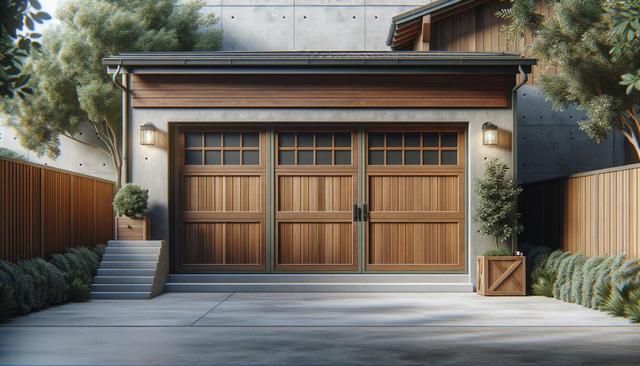Understanding the Role of Garage Doors
Garage doors serve multiple functions beyond simply providing access to your garage. They contribute significantly to the overall security, energy efficiency, and curb appeal of your home. In many households, the garage door is used more frequently than the front door, making it one of the most crucial entry points. Investing in a reliable garage door system not only enhances convenience but also offers peace of mind. A properly functioning door can deter unauthorized entry and protect your belongings from the elements.
There are various types of garage doors, including sectional, roll-up, slide-to-side, side-hinged, and tilt-up canopy models. Each style has unique advantages and is suited to different architectural needs and spatial constraints. For example, roll-up doors are ideal for spaces with limited ceiling room, while sectional doors are common in residential settings due to their insulation options and ease of use.
Material Matters: Choosing the Right Garage Door
Garage doors are available in a variety of materials, each with its own set of benefits and drawbacks. The most common materials include:
- Steel: Durable, low-maintenance, and often insulated for energy efficiency.
- Wood: Offers a classic aesthetic but requires regular upkeep to prevent warping and rot.
- Aluminum: Lightweight and rust-resistant, suitable for humid or coastal environments.
- Fiberglass: Resistant to dents and corrosion, but less insulating than other materials.
The right material for your garage door will depend on your climate, budget, and design preferences. For homeowners in colder regions, insulation is a key consideration, as it helps reduce energy bills and keeps the garage usable year-round. Conversely, in warmer climates, reflective or ventilated doors may help manage heat buildup inside the garage.
Garage Door Mechanisms and Features
Beyond aesthetics and materials, the functionality of your garage door depends significantly on the mechanism and additional features you choose. Most residential garage doors are powered by either chain, belt, or screw-driven openers. Belt-driven models are known for quiet operation, making them suitable for homes with attached garages. Chain-driven systems are more affordable but tend to be noisier, while screw-driven openers offer a good balance of speed and reliability.
Modern garage doors can be equipped with several technological enhancements, such as:
- Smart openers with mobile app integration
- Motion-sensor lighting
- Keypad entry systems
- Battery backup for power outages
These features add convenience and an extra layer of security. Additionally, safety features like auto-reverse sensors and manual release mechanisms are essential for preventing accidents and ensuring safe operation.
Maintenance Tips for Long-Lasting Performance
Regular maintenance can significantly extend the lifespan of your garage door and its components. A well-maintained door not only operates more quietly and efficiently but also reduces the risk of unexpected breakdowns. Homeowners should perform a visual inspection monthly, looking for signs of wear on springs, cables, rollers, and tracks.
Here are some routine maintenance tasks you can do:
- Lubricate all moving parts with a garage door-specific lubricant.
- Tighten any loose hardware, such as bolts and brackets.
- Test the balance of the door by disconnecting the opener and manually lifting it halfway—if it stays in place, it’s balanced; if not, it may need professional adjustment.
- Clean the door exterior to remove dirt and grime, which can cause material degradation over time.
It’s also advisable to schedule a professional inspection annually to check for less obvious issues, such as worn-out torsion springs or misaligned tracks. Addressing these problems early can prevent more costly repairs in the future.
When to Consider Replacement or Upgrades
Despite proper care, garage doors don’t last forever. Most doors have a lifespan of 15 to 30 years, depending on material, usage, and maintenance. If your garage door frequently breaks down, makes excessive noise, or lacks modern safety features, it may be time to consider a replacement.
Upgrading your garage door can also be a strategic investment. Newer models offer improved insulation, better security features, and enhanced aesthetic appeal. For homeowners planning to sell, a new garage door can increase property value and attract buyers. When selecting a replacement, it’s important to factor in not only the style and material but also the opener system and additional features that suit your lifestyle.
Professional installation is recommended for any replacement to ensure proper fit, alignment, and safety compliance. While DIY kits are available, improper installation can lead to functional and safety issues down the line.




Leave a Reply